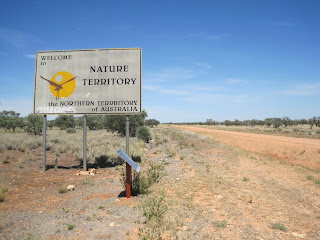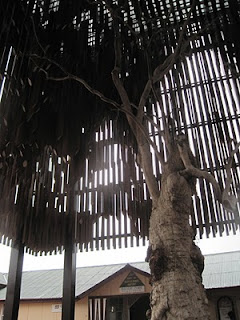December 29, 2010
I wring out my shirt and put it back on wet. Next I pour water over my head from the little remaining in the bucket. It’s 8 o’clock in the morning. “I’m just cooling my temper as the heat rises,” I tell Johan who’s wondering why I’m interrupting the flow of packing up to get wet. It’s the only way I know not to get grouchy when the temperature’s already well past 30˚ and the temp inside the tent is a good 10˚ higher as I’m making the bed and taking down the poles.
Why do I love the outback so much if the heat gets to me so badly? We posit this paradox over breakfast, along with the bigger question: Why do we love the outback at all when it’s so harsh and hard to travel through? Some paradoxes just go unsolved, but the best answer we can get out of this one is that’s it’s just worth the challenge. Something in the challenge, the struggle of it all, makes it that much more exciting to achieve. Why do people climb Mt Everest after all?
Heat makes me grumpy, it’s true, but the feeling of cool water on me when I’m about to pop my cork is a fabulous experience. What else can I say? It’s one of those weird but wonderful eccentricities we all have. Isn’t it?
But as the day wears on, it’s becoming increasingly clear to both of us that enough is enough. The last 150kms of the Outback Way Alice
We cruise into Alice Outback Way! Queensland Alice , we’ll head south towards Adelaide
We pull into the first caravan park as we’re entering Alice Alice
We set up camp and head for the pub. A celebratory drink is in order and we grab an outdoor table at Uncle’s Tavern in town. Workers in fluorescent shirts and grimy caps smoke cigarettes and share yarns about their day. The tavern’s verandah is surrounded by a black wrought iron fence with a row of gold tipped arrows pointing up along the top. It gives one the feeling of being in a cage. On the other side, along the footpath, black men and women and a few children wander by, looking hot and downtrodden, avoiding eye contact with the beer drinkers.
“This is what it’s like in South Africa or the Deep South of the U.S.














































